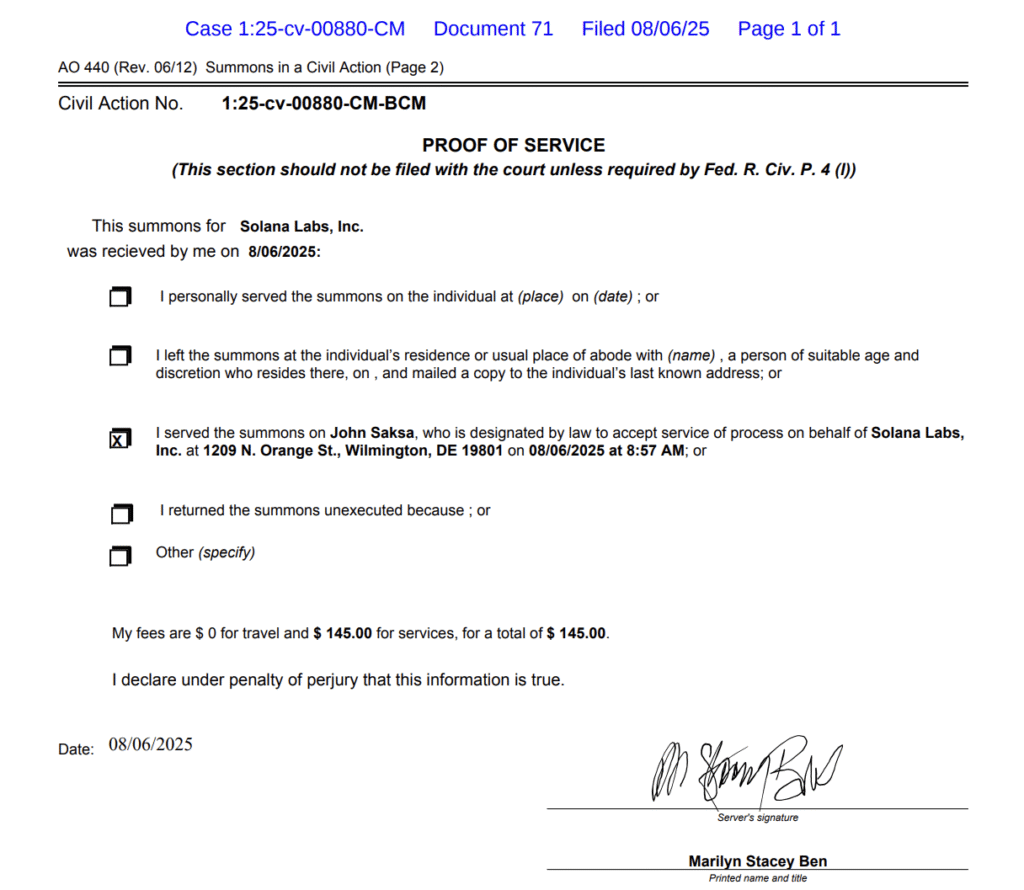Solana’s most notorious memecoin launchpad, Pump Fun, has always thrived on chaos and creativity. With meme-fuelled speculation driving absurd amounts of capital through its platform, it has never shied away from taking risks.
But now, the team is entering uncharted territory. The launch of its Glass Full Foundation suggests a new direction that could reignite its ecosystem, just as legal scrutiny threatens to unravel everything.
Pump Fun Introduces the Glass Full Foundation to Revive Ecosystem Activity
Pump Fun recently announced the launch of the Glass Full Foundation, a new initiative aimed at supporting memecoins launched within its ecosystem.
The idea is to provide these tokens with liquidity, directly injected by the foundation. According to the team’s statement on X, the goal is to support the most devoted communities built around Pump Fun launches.
The announcement arrived just weeks after Pump Fun launched its native token, PUMP, through an initial coin offering that raised an astonishing 600 million dollars in only 12 minutes.
The team followed this with a significant token buyback, a move many interpreted as an effort to stabilise the token’s price. Now, with the foundation in place, they appear to be shifting attention towards keeping their memecoin ecosystem alive.
Foundations in crypto are typically established as legal entities, often with non-profit status, to help guide project development and provide financial or strategic support.
In Pump Fun’s case, the Glass Full Foundation seems to be taking on a similar role, but few concrete details have been shared.
There is no information about how the liquidity will be allocated, what criteria projects must meet to receive support, or where the capital is coming from.
What is clear is that the timing is no coincidence. Pump Fun has seen a notable decline in platform revenue. At the height of the memecoin mania in January, daily revenue exceeded seven million dollars.
That figure has since dropped dramatically, reaching lows of just 200,000 dollars earlier this month. The excitement that once surrounded the platform appears to be fading.
To make matters more complicated, Pump Fun has been facing stiff competition from a newer launchpad, LetsBonk Fun. Built on Solana and backed by the Bonk memecoin community, LetsBonk is integrated with Raydium and has briefly surpassed Pump Fun in daily token launches.
With a slicker interface and more community momentum, it is putting serious pressure on the original memecoin machine.
The Glass Full Foundation may be Pump Fun’s answer to this pressure. By injecting liquidity into promising ecosystem tokens, the team could breathe new life into stale markets and reignite community activity.
However, the lack of transparency surrounding the initiative raises questions about its legitimacy and long-term effectiveness. Without clear guidelines or a public funding structure, the foundation’s success is far from guaranteed.
A Growing Legal Crisis Threatens Pump Fun’s Future
While Pump Fun is busy making moves to revive its ecosystem, it is also facing a potentially devastating legal battle. A newly filed lawsuit accuses the project of operating an illegal casino-like enterprise that facilitated the laundering of 1.5 billion dollars worth of stolen crypto.

The case alleges that Pump Fun was used to wash funds from the ByBit exchange and that its core infrastructure providers were complicit.
The lawsuit has already been served to major figures within the Solana ecosystem, including Solana Labs and Jito Labs. Executives from the Solana Foundation, such as General Counsel Yelena Cavanaugh and Executive Director Dan Albert, have also been named.
The legal team behind the case, Wolf Popper and Burwick Law, argues that these organisations acted as co-conspirators by enabling Pump Fun’s activities through their blockchain infrastructure.
This is not a routine compliance issue. The claim suggests a deliberate effort to avoid securities regulation and consumer protection laws while scaling up an unregulated gambling platform.
It paints a picture of coordinated action between Pump Fun and other Solana-affiliated entities to expand the platform’s reach while shielding it from legal oversight.
Previously, lawsuits against Pump Fun only named its internal team. Those cases have now been merged and updated to include a broader network of defendants.
Alon Cohen, Dylan Kerler, and Noah Tweedale, the individuals behind Pump Fun, were reportedly slow to secure legal representation and nearly missed a deadline to respond to the initial complaint.
The legal implications are wide-reaching. If courts rule that blockchain infrastructure providers can be held accountable for the actions of platforms like Pump Fun, it could fundamentally change how decentralised projects are launched and maintained.
It also raises difficult questions about how decentralisation is interpreted under current legal frameworks.
For Pump Fun, the stakes could not be higher. The platform is already struggling with lower activity and dwindling enthusiasm from memecoin traders. Being at the centre of a lawsuit of this scale could further damage its credibility and scare off any remaining backers or users.
It also casts a shadow over the recently launched Glass Full Foundation, especially given the absence of transparency regarding its funding and operations.
What was once seen as a playful and chaotic hub for meme-driven tokens is now facing serious questions about legality, accountability, and governance.
As the investigation unfolds, the Solana ecosystem itself may need to reassess how far it is willing to support projects that blur the lines between experimentation and regulatory defiance.
Conclusion
Pump Fun is attempting to stage a comeback at a time when both market enthusiasm and legal tolerance are waning.
The Glass Full Foundation reflects the team’s commitment to supporting the ecosystem it helped create, but without transparency and clear oversight, its impact remains uncertain. Meanwhile, the lawsuit it now faces is not just a bump in the road, it could define the project’s fate.
Whether Pump Fun can navigate this storm and return to its former position at the heart of Solana’s memecoin culture remains to be seen. For now, the project stands at a critical crossroads, caught between ambition and accountability.

